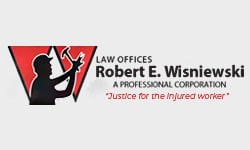In Arizona, we have an occupational disease statute, which is found in A.R.S. 23-901.13(C). An occupational disease is defined by law as a condition that is “due to causes and conditions characteristic of and peculiar to a particular trade, occupation, process or employment, and not the ordinary diseases to which the general public is exposed.”
In short, this statute expands workplace injuries arising from accidents to include occupational diseases.
Elements of an occupational illness claim in Arizona
There are 6 key elements of an occupational disease.
- There is a direct causal connection between the conditions under which the work is performed and the occupational disease.
- The disease can be seen to have followed as a natural incident of the work as a result of the exposure occasioned by the nature of employment.
- The disease can be fairly traced to the employment as the proximate cause.
- The disease does not come from a hazard to which workers would have been equally exposed outside the employment.
- The disease is incidental to the character of the business and not independent of the relation of employer and employee.
- The disease, after its contraction, appears to have had its origin in a risk connected with the employment, and to have flowed from that source as a natural consequence, although it need not have been unforeseen or expected.
It is very important that your occupational disease be proven by meeting all of the above 6 elements.
When something is determined to be (or thought to be) an occupational disease, the Industrial Commission of Arizona appoints a 3-doctor panel.
Common defenses used to deny occupational illness claims
The most common defenses insurers and employers use to deny claims arising from an occupational disease are:
- Willful self-exposure
- Employee misconduct
- Disobedience to reasonable rules (for example, not wearing personal protection equipment)
Complicating factors for COVID-19 claims
When it comes to securing compensation for a COVID-19 diagnosis, there are several factors that workers in Arizona must consider:
- The nature of employment and the risk of contracting COVID-19
- Whether an identifiable exposure occurred at work
- Whether an identifiable exposure occurred outside of work
- Timing between the identifiable exposure and development of COVID-19 symptoms
- Reliability of medical and other evidence that the work-related exposure caused the disease
These factors must be considered if you are attempting to prove an exposure to COVID-19 outside of Arizona’s occupational disease statute.
ICA guidelines and recommendations to Arizona employers and insurers
The Industrial Commission of Arizona (ICA) issued a substantive policy statement on May 15, 2020 giving the following advice and recommendations to employers, self-insureds and insurance companies:
- Do not categorically deny COVID-19 claims. Investigate in good faith, considering all facts and evidence.
- Denials should be “well grounded” in fact.
- The Unfair Claims Act applies.
- Adequate supporting information to deny a claim is required.
Currently, there is no presumption in Arizona that COVID-19 emanates from a particular employment.
Why consult with our Arizona work injury lawyers
If you believe you contracted COVID-19 at work and are being denied workers’ compensation benefits, we encourage you to reach out to our experienced attorneys for assistance and advice.
When you meet with us, we will consider the following factors:
- Have there been several cases among workers working closely and no alternative explanation?
- Was there lengthy close exposure to a person who has confirmed COVID-19 and no alternative explanation?
- Do your job duties include frequent close exposure to general public community transmission?
- Was there an exposure to COVID-19 of persons outside the workplace?
- How do you believe you contracted COVID-19?
- What is your work environment like?
- Are you staying at home and limiting outside activity?
- Is your claim fact-driven and evidence-based?



 Back Injury at Work
Back Injury at Work Shoulder Injury at Work
Shoulder Injury at Work Work-Related Car Accidents
Work-Related Car Accidents Electrical Accidents & Injuries
Electrical Accidents & Injuries Post Traumatic Stress Disorder
Post Traumatic Stress Disorder Slip, Trip & Fall Injury
Slip, Trip & Fall Injury